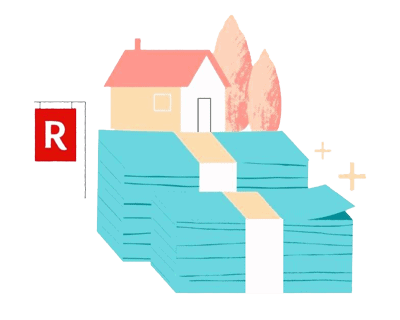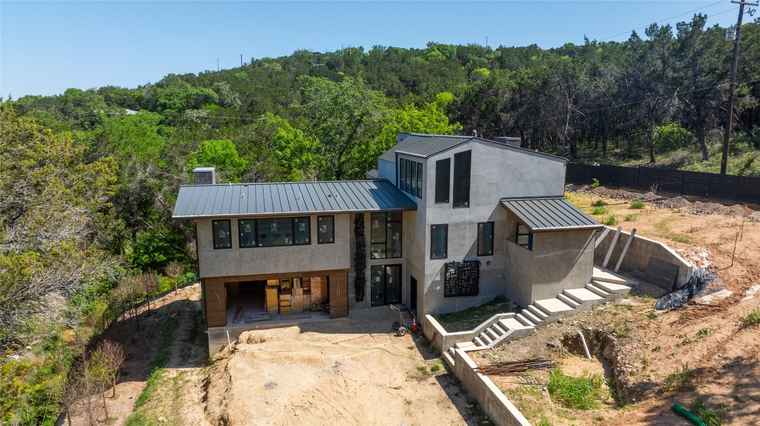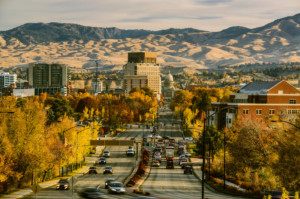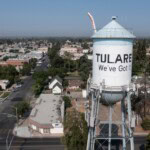Nestled in the heart of Texas, Austin is a city that has it all – vibrant culture, stunning natural beauty, and great weather. However, like any city, it also has its pros and cons. From the scorching hot summers to traffic congestion, living in Austin can be both exhilarating and overwhelming for some. For those considering making the move to the “Live Music Capital of the World,” whether you’re thinking about renting an apartment in Austin or looking for a house in the area, the city is sure to bring about adventure, excitement, and endless possibilities. In this Redfin article, we will explore ten pros and cons of living in Austin, so you can decide if Austin is a good place to live.
Interested in moving to Austin? Check out:
Homes for sale in Austin, TX | Apartments for rent in Austin, TX | Houses for rent in Austin, TX

Quick Facts about Austin
| Median home sale price | $586,000 |
| Average monthly rent | $1,539 |
| Walk Score | 42/100 |
| Transit Score | 35/100 |
| Bike Score | 54/100 |
1. Pro: Austin has warm weather
The weather in Austin is generally warm and mild, with hot summers and mild winters. Summer temperatures average in the 90°s F, while winter temperatures average in the mid-50°s to low 60°s F. The city also experiences occasional heat waves, with temperatures sometimes reaching over 100°F. Austin generally has low humidity but can be prone to heavy rain and flash floods, especially during the spring and summer months. Overall, Austin has a warm and sunny climate, making it a great place for outdoor activities throughout the year.
2. Con: There is considerable traffic congestion in Austin
With Austin’s rapid population growth over the recent years, the city has also seen an increase in traffic congestion on the city’s roads and highways leading to longer commute times. During peak hours, major roads such as I-35, Mopac Expressway, and US-183 can experience heavy congestion and slow-moving traffic.

3. Pro: There are ample job opportunities
If you’re moving to Austin, you’ll be happy to know that the city offers a wide variety of jobs within different industries such as technology, healthcare, education, and retail. The city has a thriving start-up scene and is often referred to as the “Silicon Hills” due to its concentration of technology companies. Some of the largest employers in Austin include Dell Technologies, Apple Inc., Amazon, National Instruments, and Whole Foods Market.
4. Con: Austin has limited public transportation
While Austin has made progress in improving its public transportation system, it still has a long way to go in providing comprehensive and convenient services to its residents. The city’s public transportation system is limited in terms of its reach, frequency, and efficiency, which can sometimes make getting around the city a challenge.

5. Pro: Outdoor recreation is plentiful
With numerous parks, lakes, and hiking trails, Austin provides ample opportunities for outdoor recreation. Some popular activities include hiking popular trails like Mount Bonnel and Barton Creek Greenbelt; biking Veloway and Lady Bird Lake Bike Trail; kayaking, paddle boarding, or fishing at Lady Bird Lake, and rock climbing at McKinney Falls State Park and Reimers Ranch Park.
6. Con: Summers are scorching hot with high humidity
Austin is known for its hot and humid summers. With temperatures frequently reaching into the 90s and sometimes the 100s, to some it can feel like a never-ending sauna outside. The heat combined with high humidity levels can make it difficult to do summer activities. To offset heat risks, Austin offers a wealth of recreational opportunities, from swimming in the many lakes and pools to exploring the shaded parks and trails.

7. Pro: There are many festivals, events, and live music concerts
Austin is known as the “Live Music Capital of the World,” with numerous music venues offering live performances year-round. Austin also has a vibrant arts and cultural scene, with numerous festivals and events taking place throughout the year, including South by Southwest (SXSW) and Austin City Limits Music Festival.
8. Con: Austin is prone to natural disasters
From flash floods to severe thunderstorms and even tornadoes, Austin residents must be prepared for natural disasters. The city has made significant strides in preparing for and responding to natural disasters, with a robust emergency management system in place including early warning systems, evacuation plans, and public education programs.

9. Pro: Austin has a delicious food scene and a vibrant nightlife
Austin is renowned for its vibrant food scene with a diverse range of cuisine options, ranging from authentic Tex-Mex to farm-to-table restaurants. Additionally, the city is home to numerous food trucks. The nightlife in Austin is just as impressive, with a thriving live music scene and plenty of bars, clubs, and lounges to choose from. Some favorite restaurants and bars include Whislers, Roosevelt Room, Garage, Small Victory, Uchi, Interstellar Barbecue, and Cabo Bob’s.
10. Con: Urban sprawl is happening
Austin’s rapid growth has led to sprawling development patterns, with new subdivisions and strip malls springing up on the city’s outskirts. This has created a fragmented and sprawling urban landscape, with long commutes, increased traffic congestion, and reduced access to green spaces.


























